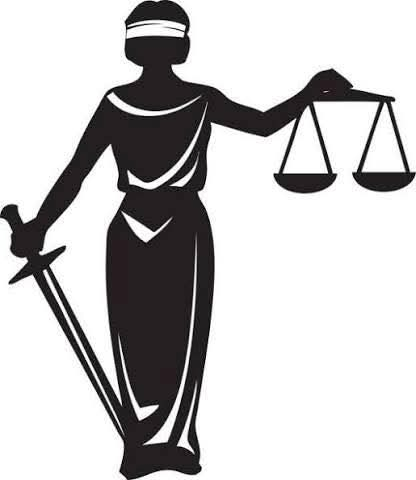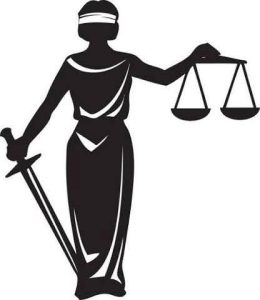How They Buy the Judges — And Break the Country By Babafemi Ojudu


A lot happens in Nigeria that, if you did not witness it yourself, you would swear it was impossible. Some events are so bizarre, so grotesque in their violation of common sense and morality, that even D.O. Fágúnwà’s magical adventures in Ìrìnkèrindò Nínú Igbo Elegbeje pale beside them. Yet these are not tales from another world; they are the lived realities of our republic.
From time to time, I feel compelled to share some of these experiences — not to dramatize, but to awaken. Our democracy is sinking, and few institutions illustrate this decline more starkly than the judiciary. We complain about it almost daily, but nothing demonstrates its decay more vividly than the episode I am about to recount.
I am compelled to narrate this story in view of the contradictory rulings that recently emerged from Abuja and Ibadan over the contentious Peoples Democratic Party convention — judgments issued not on merit, but based on who has influence in particular jurisdictions. It is a dangerous sign of the times.
And may I tell you that the charade, the national disgrace that happened in Abuja between Minister Nyesom Wike and the young naval officer was a result of lack of trust in the judiciary which engenders a resort to self help from both sides.
A Meeting That Should Never Have Happened
Several years ago, during a political dispute in Ekiti, I received an unexpected call from the late Senator Buruji Kashamu. He invited me to Lagos, promising to help resolve the matter. Out of courtesy, I went.
When I arrived, a prominent lawyer and another Ekiti politician were already seated in his living room. We exchanged greetings, and the conversation began casually enough.
Then came the moment that still chills me.
Kashamu excused himself, climbed the stairs, and returned with a briefcase. He set it down, opened it with a flourish, and turned to the lawyer with a smirk:
“Egbon, you refused when I asked you to write judgments for me. Each one would have earned you ₦50 million. Anyway, I have found another lawyer who does it very well.”
My friend looked at him, stunned. I sat rooted in disbelief.
Kashamu then brought out file after file — documents no private citizen should possess.
Inside that briefcase were:
• Judgments for cases already in court
• Judgments for cases he planned to file
• Judgments for cases he anticipated might be filed against him
All pre-written.
All waiting for the right judge.
He boasted that all he needed was to ensure his cases were assigned to “friendly judges.” Once that was done, he handed over the completed judgments — after greasing the necessary palms.
It was a moment of horror. A moment when the illusion of justice crumbled.
As Lord Denning once warned:
“Justice must be rooted in confidence, and confidence is destroyed when right-minded people go away thinking that the judge was biased.”
I walked out of that meeting with my faith in our judiciary deeply shaken. From that day, I resolved never again to take his calls.
Justice for Sale, Democracy in Danger
This story is not about one man. It is about a system slowly suffocated by those entrusted to protect it. When judgments are drafted in private homes before cases reach the courtroom, what we have left is not a judiciary but a cartel of influence, a black market of verdicts, and a criminal conspiracy wearing the robes of justice.
Let us be clear:
• Corruption in the judiciary is not ordinary corruption. It is corruption that eats the soul of a nation.
• It does not only steal money; it steals trust.
• It does not only distort outcomes; it destroys the foundation of society.
Justice Chukwudifu Oputa, one of Nigeria’s greatest jurists, once cautioned:
“The judiciary is the last hope of the common man. If the judiciary fails, where shall the common man turn?”
We are approaching that frightening moment.
Five Terrifying Implications of a Rotten Judiciary
1. The Innocent Can Be Destroyed
When the gavel is for sale, an innocent man can be jailed for another man’s crime. A widow can lose the only land her husband left behind. A community can be dispossessed overnight.
2. Criminals Become Untouchable
The powerful can violate laws, crush opponents, loot funds, and then secure court orders to legitimize their wrongdoing.
3. Politics Becomes Warfare
When verdicts follow money, not evidence, elections become meaningless. Courts become battlefields where victory goes to the highest bidder.
4. Public Trust Evaporates
Citizens lose faith in institutions. Cynicism becomes the national attitude. Society drifts towards self-help and anarchy.
5. No Nation Can Thrive Without Justice
As Justice Learned Hand warned:
“If we are to keep our democracy, there must be one commandment: thou shalt not ration justice.”
Yet that is precisely what we have begun to do.
How Did We Get Here?
This rot did not begin today. It accumulated slowly:
• Politicians seeking shortcuts
• Lawyers willing to sell their conscience
• Judges who traded honour for envelopes
• A system that rewards impunity
• A society too fatigued to resist
Now we live in a country where justice can be pre-written, transported in briefcases, and delivered like contraband.
A Nation at the Edge
We stand at a dangerous precipice.
A country survives hunger.
It survives insecurity.
It survives economic crisis.
But no country survives the death of justice.
When courts lose credibility, citizens withdraw their loyalty.
When judges can be bought, the rule of law collapses.
When justice is for sale, tyranny becomes inevitable.
What Must Be Done
There is no option but urgent, radical reform. We must:
• Purge corrupt judges
• Introduce transparent case allocation
• Strengthen oversight and discipline
• Protect judges from political pressure
• Digitize court processes to reduce human interference
• Enforce rigorous asset declarations
• Empower judicial whistleblowers
• Demand accountability from the NJC and legal associations
Above all, we must restore dignity to the bench. A judge without integrity is more dangerous than an armed robber — for the robber can only steal property, but the corrupt judge steals justice, peace, and the future.
A Final Warning
Some may dismiss this as another Nigerian anecdote. It is not. It is a mirror held up to a nation drifting towards catastrophe.
Unless we confront and uproot the rot in our justice system, we will one day wake up to find that we have no country left — only a territory ruled by the powerful and the lawless.
We cannot continue like this.
Justice must return to the courts.
Honour must return to the bench.
And truth must once again be something a citizen can expect — not something that can be bought.
Until then, Nigeria will continue to stagger like a giant robbed of its spine.




